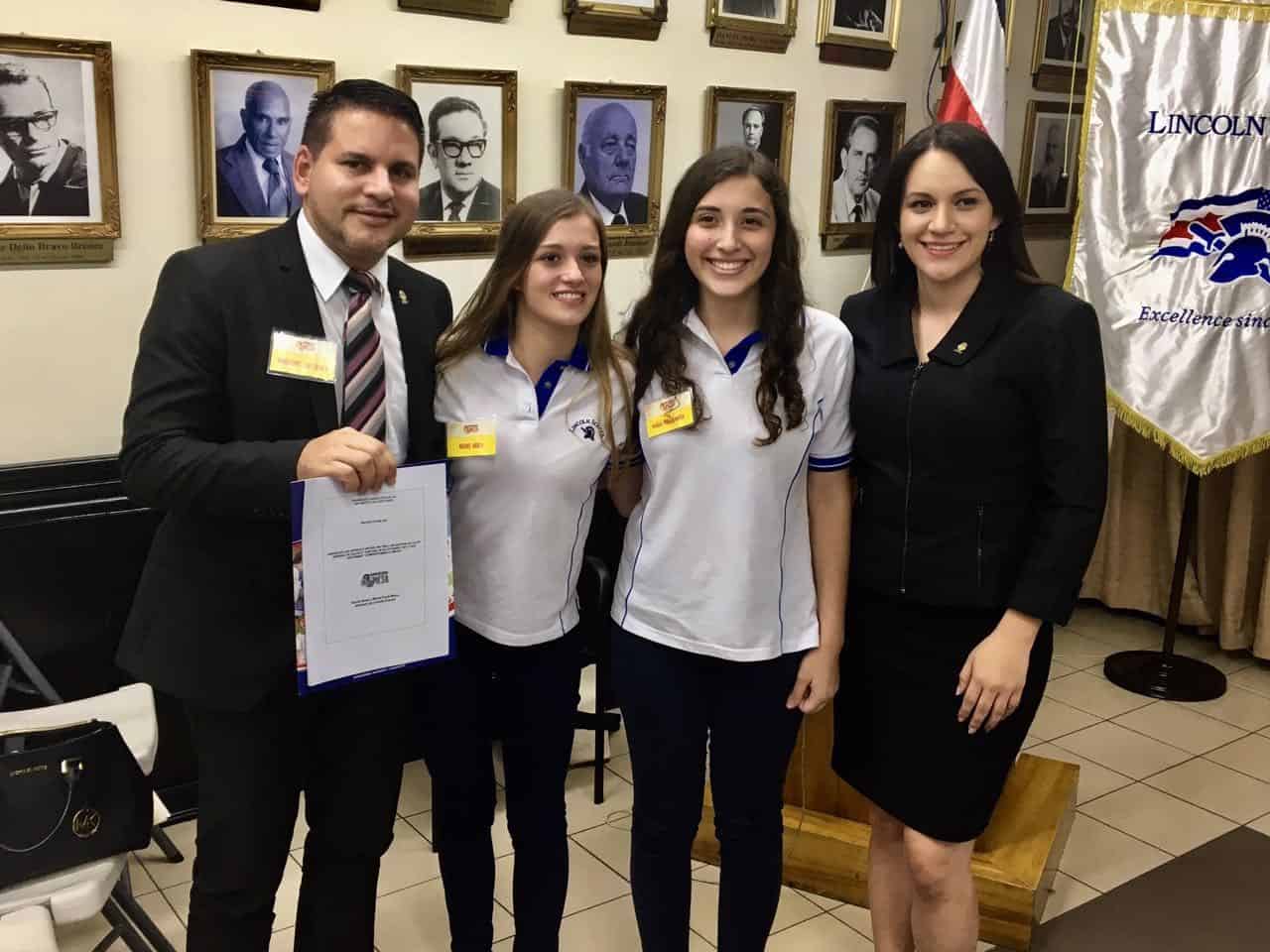San Miguel de Santo Domingo — In Latin America and the Caribbean, nearly 40 million people suffer from undernourishment, according to data from the Food and Agriculture Organization of the United Nations.
Yet one-third of food produced for human consumption worldwide gets lost or wasted.
Nicole Arrea finds that unacceptable. Since 2016, she has been pushing Costa Rica to pass a law she helped draft, one that could help reduce the amount of food waste created here. But Arrea is no politician. She’s barely old enough to vote.
A high-school student at the Lincoln School in Barrio Socorro, Arrea has been involved in the political system since she was an underclassman. Not that navigating the process has been easy.
“I think at the time, I was more naive,” Arrea, now a senior, told The Tico Times. “I thought it was going to be way simpler than it actually is.”
The initiative, Compartamos la Mesa, seeks to create a feasible way for benefactors in Costa Rica to donate perishable food. According to the current legal code, people or institutions that donate food maintain responsibility over the product. Arrea’s proposal would absolve some of that legal burden so long as benefactors adhere to food-safety standards and donate in good faith.
If adopted, the law could help uneaten and excess food feed the hungry rather than the raccoons trolling the trash bins.
“It was my duty as a Costa Rican citizen to write this bill,” Arrea said. “If I knew that this legal technicality was the problem of food not being donated, then it was my duty to fix it. I think the government are just mentors for the people, and the people should also drive change.”
The Costa Rican government is receptive to public feedback. The Office of Popular Initiatives (OIP) allows any person, regardless of age or nationality, to present suggestions or draft bills.
That freedom prompted Arrea and classmate María Paula Mora — who were both below the legal voting age of 18 at the time — turn a “very little idea” about food waste into a possible law they hope is adopted in Costa Rica and throughout Central America.
“At the end, I’ve come to realize that whether I’m in high school or not, we are working for the same thing, the same cause,” Arrea said.
According to their proposal, Costa Rica wastes around 5,000 tons of food annually, enough to feed more than 200,000 people. The majority of that discarded food comes from supermarkets, hotels, food centers and restaurants.
It was at her own school cafeteria, in fact, where Arrea first noticed how many meals were trashed. She queried the Lincoln School’s community service coordinator, who informed Arrea of the liability laws.
“I don’t think I’ll ever have a day where I see people throw away food and not have strong feelings about it,” Arrea said.
Inspired in part by the United States’ Bill Emerson Good Samaritan Food Donation Act, which was passed in 1996 with strong bipartisan support, Arrea’s proposal stipulates benefactors would not be subject to civil or criminal liability except in the case of negligence or malice.
The Ministry of Health would oversee participants of Compartamos la Mesa to ensure they were complying with safe and sanitary collection, transport and conservation of food.
The bill is currently being worked by a subcommission in the Committee on Social Affairs, after which it will be sent to the Plenary of the Legislative Assembly. There, Arrea says she hopes it can be voted on immediately.
“It’s a slow process,” Arrea said. “But if I can do a project that’s going to have such a positive impact with the knowledge of a high school girl, I’m super interested to see what I can come up with, with the knowledge of a college student or a college graduate.”






